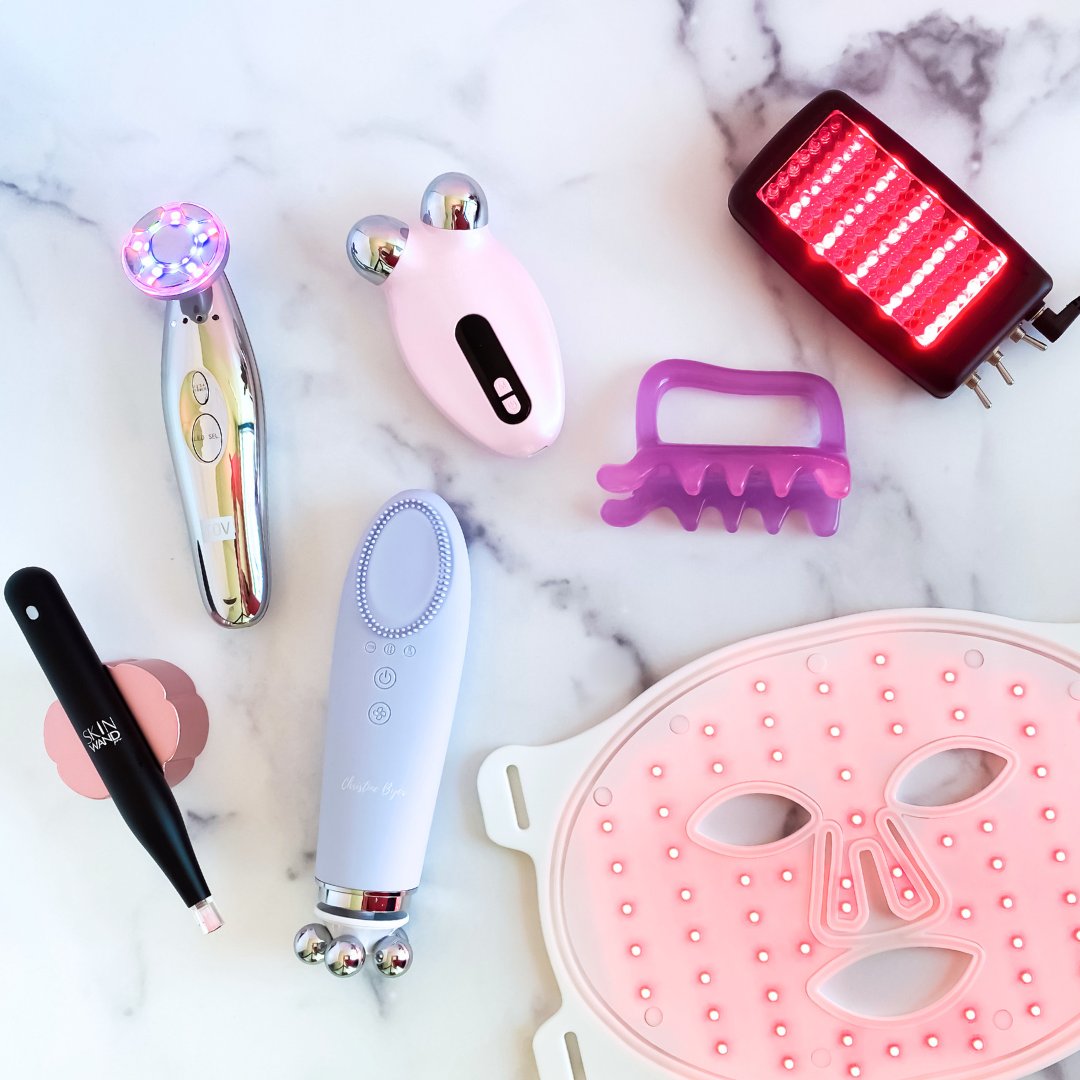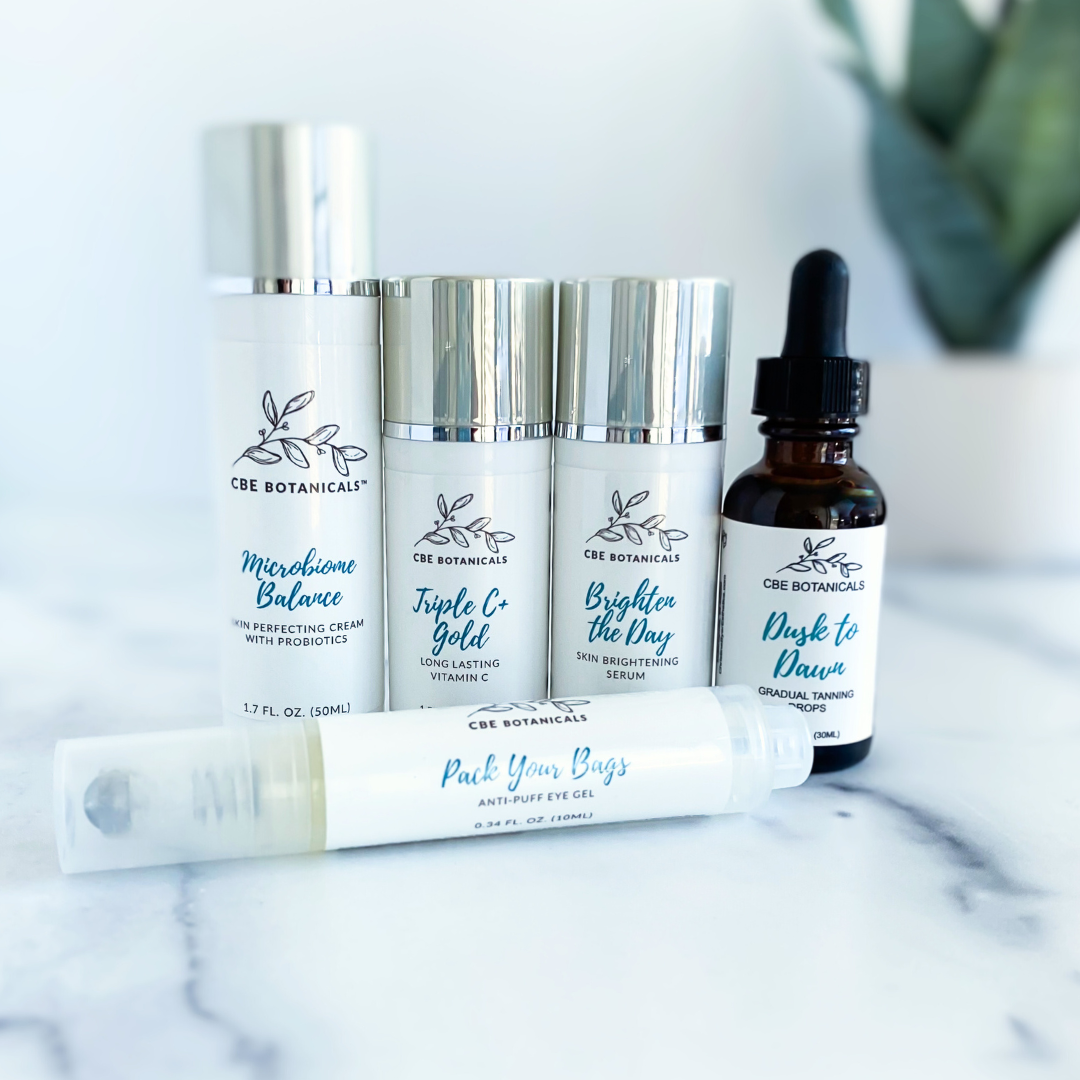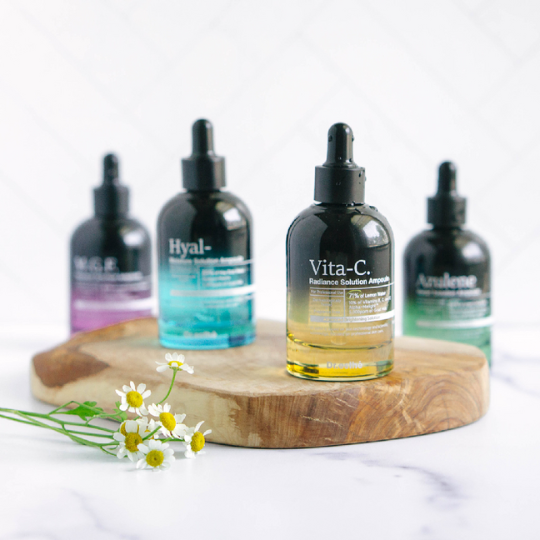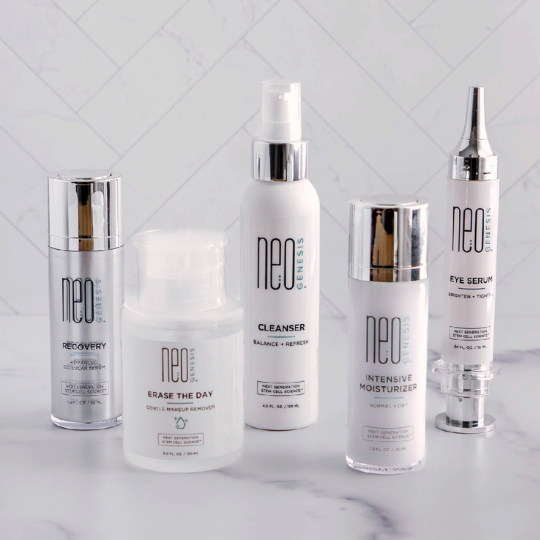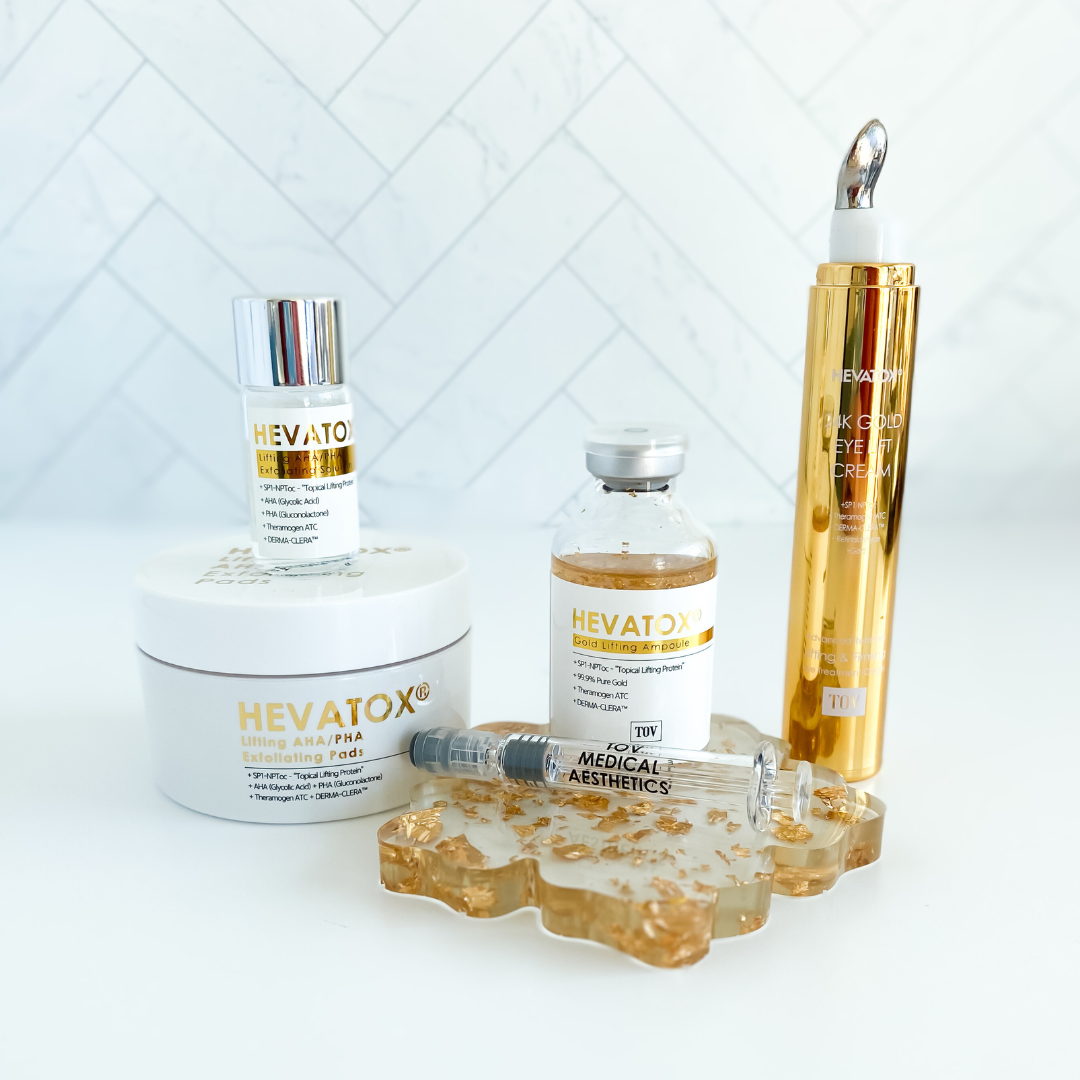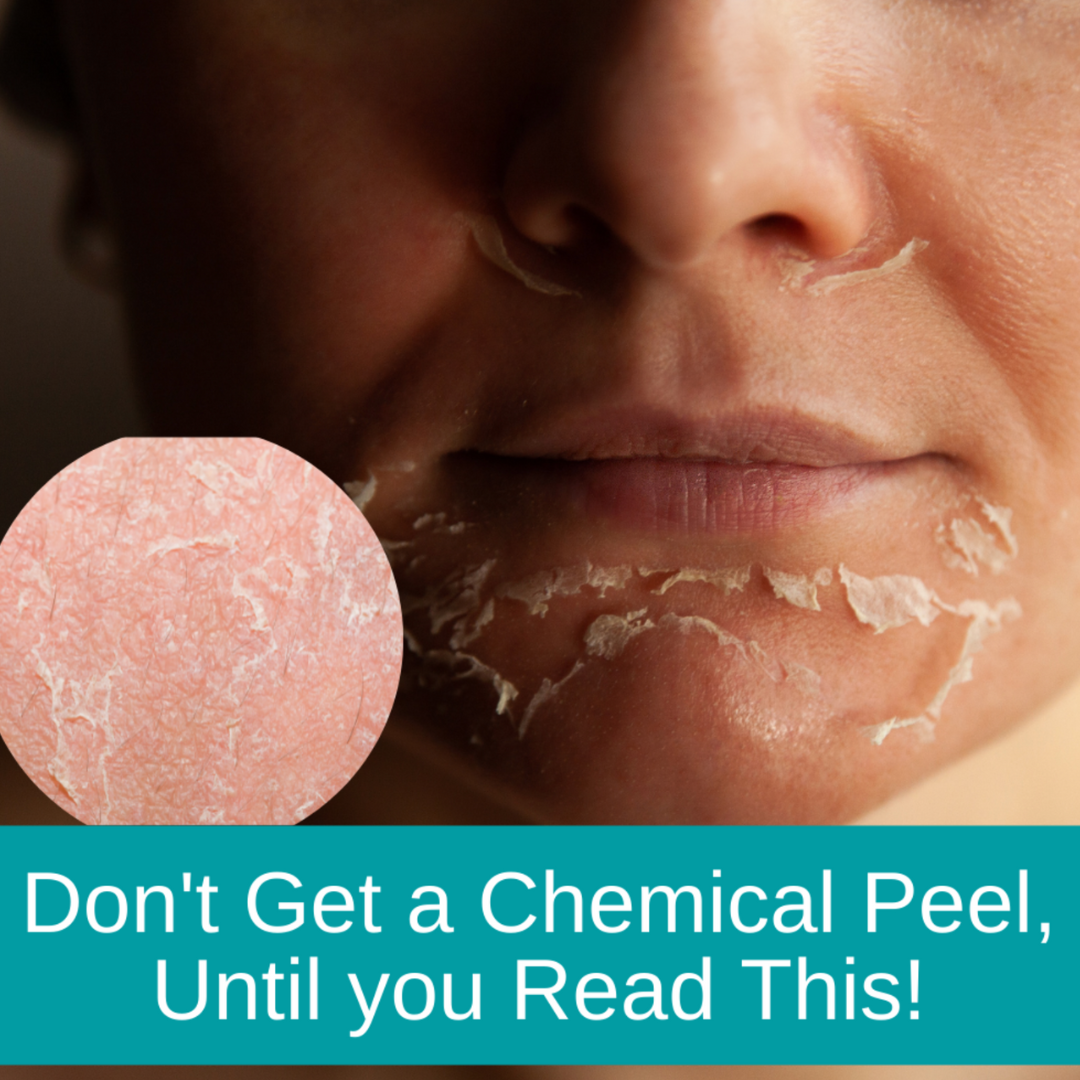The thought of applying chemicals to your face sounds like a pretty frightening thing to do, right? No doubt you have heard about someone who received a chemical peel resulting in adverse effects. After you read this article, you'll be able to make an informed decision to take advantage of the benefits of a professional peel, and safely perform an at-home peel.
Why does this matter?
Because a chemical peel damages the skin in a controlled manner, producing a superficial wound. While this might sound counterproductive, this process signals new collagen and elastin formation. Understanding the process, how to prepare, how to do aftercare, and what to expect will ensure the natural healing process goes well. Additionally, we'll look at the contraindications.
The kind of chemicals applied to the skin determines how deep the damage occurs and if it is a superficial, medium, or deep peel. It is very important to use high-quality products. Using too high a percentage can cause adverse results and ensuring the accompanying ingredients will support the peel process and not irritate the skin.
Percentages of acids can range between 20 - 70% in more aggressive peels. A safe percentage for at-home or a gentle peel is 8-10%.
Peel Depth Choices
A superficial peel is performed with alpha or beta hydroxy acid or another mild acid to reach only the outer layer of the skin, gently exfoliating it. Alpha hydroxy acids are found in plants and fruits and are in skincare products for their exfoliating properties.
A medium peel penetrates deeper to reach the middle layers of the skin in order to remove dead or damaged skin cells. This treatment is performed with an application of glycolic acid, an acid found in some sugar crops. It is also widely used in skincare products. An additional acid that may be used is salicylic acid. Salicylic acid is made from the bark of the willow tree.
A deep peel uses trichloroacetic acid or phenol, which penetrates the middle layer of the skin. Deep peels are not as common due to the use of newer lasers. Lasers are perfect for resurfacing the skin and effectively treating acne scars.
Benefits
Chemical peels can improve sun damage, lighten acne scars, improve fine lines, help uneven skin tone and refresh skin for a more youthful appearance. It will not have a huge impact on deep wrinkles and in some cases it can cause more uneven pigmentation. Unfortunately, this is not something that can be foreseen in some skin types or skin conditions.
Superficial peels are the safest for all skin types or the 8 - 10% range.
Preparation
Preparing for a chemical peel requires you do not exfoliate. Since a chemical peel is an in-depth exfoliation, it's important that you don't exfoliate for at least 1 week before your appointment. Refrain from wearing make-up the day of your peel. Avoid the sun. Stay hydrated.
Aftercare & Expectations
Immediately after the peel, your skin will feel tight and may be red. Any visible peeling will be light and fluffy and easily controlled with moisturizer. Peeling usually lasts 3 - 5 days, depending on the actual peel treatment. At 5 - 7 days all side effects should start to subside, and your skin should begin to look and feel “normal.” At 7 - 14 days you'll see the formation of healthy, new skin! Some notice some redness or skin that is darker or lighter than usual for up to a month. Using NeoGenesis Recovery twice daily will help the healing process.
Frequency
The frequency of chemical peels depends entirely on what kind of chemical peel you receive. For superficial or surface layer peels, you can repeat your treatment up to once a month. By contrast, deep peels require additional healing time for your skin and should only be done once every two to three years.
In closing, before undergoing a professional peel, your licensed esthetician or dermatologist must do a full consultation, gathering the information needed to know the best peel option for your skincare needs.
If you opt for a peel in the privacy of your home, choose a superficial peel to ensure the highest level of safety.
Contraindications
A chemical peel is not advised if...
- you are taking the oral acne medication isotretinoin (Myorisan, Claravis, others) in the past six months.
- you have a personal or family history of ridged areas caused by an overgrowth of scar tissue (keloids).
- you are pregnant.
- you have inflamed acne or a sunburn or taking Accutane.
- you are using retinoids, you must stop using the product three to four days before treatment.


